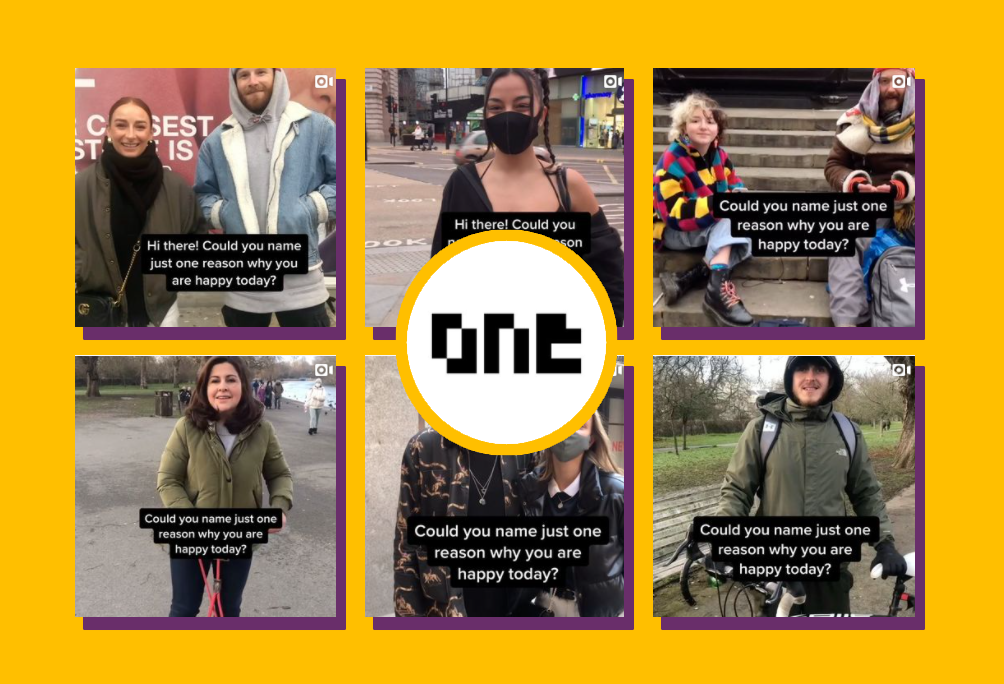Rianna Raymond-Williams has spent the last few years providing STI and HIV results to patients, talking about safer sex and contraception to young people and making referrals as a sexual health advisor for the NHS. She also runs her own sexual health organisation, Shine Aloud, where creative media and peer-led training is used to improve sexual outcomes for young people.
Rianna believes sex education empowers young people to have the knowledge and confidence to make their own decisions regarding all matters related to sexual health.
“I think it’s important for all people to have an understanding of their bodies, understanding of their rights and emotions when it comes to sexual health and relationships,” says Rianna. “It’s important for them [young people] to have the confidence to request what they want in relationships and to know boundaries.”
“Just as much as we focus on academic attainment, there should be the same focus on health and wellbeing, and sexual health is definitely a part of that.”
Although Rianna says sex education in England is better than most countries, the advisor believes there is still a stigma attached to sex, preventing it from being taught effectively. She thinks there is almost an assumption that if people were informed about their bodies, they would “use them” rather than learning about it as a protective measure.
“I guess there’s just a lack of intention when it comes to sexual health and just being able to really have these conversations really openly and honestly, and just saying you don’t know as well,” says Rianna. “There’s a lot of fear attached to sexual health. People are scared to give people the information they need. There’s just a silence, a culture of silence that continues to make people feel uncomfortable.”
It has been recognised that the guidance for Relationships and Sex Education is outdated, and the Department for Education decided to unveil updated guidelines for sex and health education across England to tackle this.
The Guidelines
Two years ago, it became statutory to teach relationships education in all primary schools and relationships and sex education (RSE) in secondary schools in England. Three new subjects were created: relationships education at primary school, relationships and sex education at secondary school, and health education for all ages.
Topics including mental health, cyber safety, and Female Genital Mutilation (FGM) are now compulsory as well.
While the advisor says the guidelines are a step in the right direction, Rianna also says implementing RSE seems really unrealistic, particularly in a time of the pandemic. She believes there is too much pressure on teachers to motivate students working from home, ensure they pass their exams, and teach a subject they might not necessarily be specialists in. The advisor says there are ways to teaching young people about RSE that is different to teaching the core subjects.
“There’s a dynamic to teaching young people and making sensitive issues really easy to navigate and understand,” says Rianna, who believes that schools are also another factor to why sex education is not as mainstream as it should be. “I guess, often because the teachers don’t have the time or the resources to teach the curriculum.
“There’s not the same investment in understanding how wide and varied sex and sex education is from the reproduction system to pleasure, to contraception, to so many more different things about your health and wellbeing.”
Not just investment, but time as well. Although there is no exam for sexual health, the advisor says there needs to be a priority within the school curriculum. “There needs to be specific time dedicated to the subject, and it’s not just once a year, or once a term where there’s a class on health and wellbeing,” she says.
The advisor believes it’s about addressing this stigma and changing the way we learn and talk about things that might be sensitive and really important to talk about at the same time.
The advisor is also concerned that the resources will lack diversity, saying she hasn’t seen “different people who are different” in the resources. “I’m not confident that they will have different bodies and faces,” says Rianna, questioning whether people of colour, different sexualities or different intersections of people will be included in the specification.
The advisor believes that when diversity isn’t catered to, it perpetuates a “one-size fits all” model, which she says does not work for everyone and isn’t helpful.
What are the consequences?
If RSE is not taught effectively, the advisor says the main consequence will be that young people will not know their rights and what they are entitled to. “It almost feels like a silencing of a part of their body, a part of your body that’s such a part of you,” says Rianna. “You can’t ignore your sexual reproductive organs, you can’t, and you shouldn’t ignore your feelings.”
When discussing rights, Rianna refers to the right to: safety, protection, talk about what you want/don’t want, access services and speak openly about your body. But she says there isn’t a safe space to work through them or have open conversations.
“The lack of support can result in many getting into unhealthy relationships or being a target of violence or abuse.”
“We should be empowering people to know about their rights and their bodily autonomy and agency,” says Rianna. “But when you suppress these elements of themselves, it’s just really dangerous. It’s not helpful.
“I think it’s really damaging for young people when they feel so empowered and knowledgeable in one space, but maybe dismissed and silenced in another.”
Studies do show that implementing sex education in the curriculum will have a positive impact on young people. SEF’s 2015 briefing shows that good RSE combined with access to sexual health services can contribute to the following public health priorities:
- Earlier reporting of sexual abuse and, in some cases, its prevention
- Reduced number of unplanned pregnancies
- Reduced number of teenage pregnancies
- Prevention and earlier treatment of sexually transmitted infections
- Reduced gap in health inequality
Plus, the United Nations Population Fund’s 2018 International technical guidance on sexuality education shows definitive proof that curriculum-based sexuality education programmes worldwide will contribute to:
- Delayed initiation of sexual intercourse
- Decreased frequency of sexual intercourse
- Reduced number of sexual partners
- Reduced risk-taking
- Increased use of condoms and contraception
To ensure that every young person in England is educated in RSE, Raymond-Williams says we need to speak to young people about what they want to know. As much as the advisor is familiar with the topic, she feels there needs to be a place where both the teacher and the students learn together.
“We should be creating shared learning spaces in terms of they are teaching me, and I’m teaching them,” says Raymond-Williams. “The world is evolving so quickly, and there needs to be a shared dialogue and space where young people can feel confident to share what they know, or feel confident to share what they don’t know and me too.”
Every young person should be taught about something so natural without a culture of uncertainty, despite there being concrete evidence supporting RSE.
While the new guidelines are a step in the right direction, it shows this is still a big issue, and many might not have received the best RSE to start with. Hopefully, teachers, parents and even professionals will now be given the appropriate resources and support to educate the next generations of young people, but also learn from them.
Anam Alam is a graduate journalist who was written about topics ranging from veganism, skincare and sex education. You can find her on Twitter at @itsanamalam.




